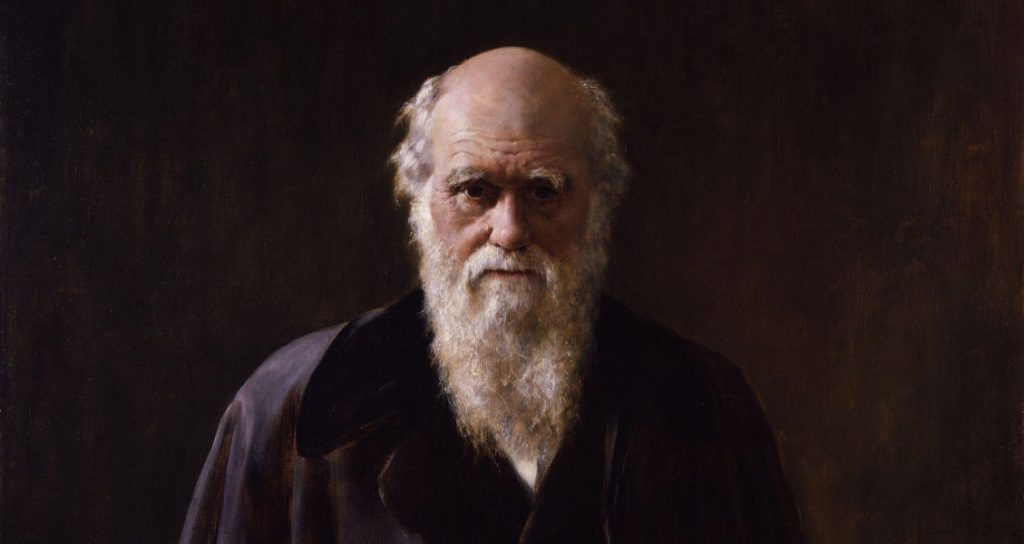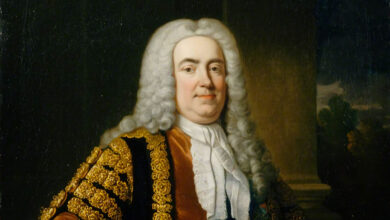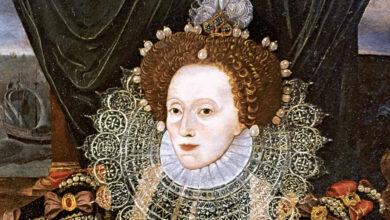
Podcast: Play in new window | Download
Subscribe: Spotify | Amazon Music | Youtube Music | RSS
Charles Darwin is quite possibly the most famous scientist of the 19th century. His observations and theories would breed extreme resistance and would leave behind a mixed legacy, but one that included unquestionable change in the way that most of Western science views the natural world.
Charles Darwin was born on 12 February 1809 in Shrewsbury, England to Robert Darwin and Susannah, whose father was Josiah Wedgwood, and was the second youngest of six children born to the couple. Although a fairly average student in most regards, Darwin grew up with an appreciation of the natural world from a young age. However, his father had a different sort of study in mind and while in the summer of 1825 his dad had him work as an apprentice doctor and compelled him to go to the University of Edinburgh Medical School, Darwin himself was far more interested in natural history and by 1827 even presented a discovery concerning black spores that were often found in oyster shells and his proof that they were, in fact, the eggs of another animal called a Skate Leech.
This and other courses of study including natural history, geology, and the classification of plants and animals helped Charles Darwin find his true passion in life, which was in natural history and the natural world. His poor grades deeply annoyed his father who instead thought that this obsession with naturalism was merely a phase and he should get onto something practical in life like becoming a member of the clergy. To this end, his dad sent him to Christ College in Cambridge and Charles Darwin began studying to become a country preacher.
Darwin’s naturalistic tendencies though did not die while studying to be a man of the cloth; instead, he became friends with another clergy member who himself was a shrewd naturalist and Darwin during his famous voyage would even send samples and reports to him for safekeeping.
Charles Darwin continued to collect and observe specimens of the natural world, but as his final exams came around in 1831, Darwin knuckled down to the proper business of academics and did exceptionally well, coming in at number 10 out of over a hundred and seventy candidates. Throughout the early summer of 1831, he continued to study natural history ravenously and read Paisley’s “Natural Theology of Evidences of the Existence of Attributes of the Deity” which had been published almost 30 years previously. In essence, it was a paper on intelligent design or how God used the laws of nature to help bring about His own personal designs.
Having finished his course of study, a friend and mentor suggested to Charles Darwin that he should see a little bit of the world before he settled down to the life of a clergyman. Charles managed to join a trip as a gentleman scholar on the HMS Beagle, and despite his father’s misgivings and feeling that this was a waste of time, Charles himself was excited for the opportunity that the Beagle would offer. The mission of the HMS Beagle was to chart the coast of South America, a voyage that was to last for 5 years, although, unfortunately for poor Charles, he was seasick for almost the entirety of the trip.
Even so, Charles Darwin’s passion as a naturalist endured and he collected a huge array of specimens from the Canary Islands, South Africa, the West and East coasts of South America, Australia and most famously his specimens from the Galapagos Islands.
During the voyage of HMS Beagle, and in all the different places he had visited, Darwin was consistently struck by the similarities as well as the differences between species that he encountered. This led him to wonder about the divergence of these species from a common ancestor and this thinking assisted him in the thought process that led him ultimately towards developing what has become known as the theory of evolution.
Charles Darwin’s approach to his personal life was no less scientific than his professional one. Since returning from the Beagle voyage, he had been experiencing various illnesses, including a particularly uncomfortable heart palpitation which led to him taking a break from his work and travelled to Scotland on 23 June 1838. He returned home the following month and briefly turned his thoughts to marriage, scribbling notes onto two pieces of paper, one headed ‘marry’ and the other ‘not marry’. After determining the pro’s and con’s he eventually decided that marriage was a good idea. This decision ultimately led to him making his cousin Emma Wedgwood his wife on 29 January 1839, five days after being elected a Fellow of the Royal Society. The couple had ten children and although two died in infancy, George, Francis and Horace were all knighted and were fellows of the Royal Society just like their father.
Charles Darwin was in no way unique in his views on evolution and many other scientists were converging upon the same idea as Darwin, although his extensive naturalistic tendencies had actually led him to gather more evidence than other practitioners in the field ultimately granting him the title of father of the discovery. This work ultimately led to his most famous book being published, the title of which is, On the Origin of Species, or the Preservation of Favoured Races in the Struggle for Life which was published on 24 November 1859.
Charles Darwin’s book rocked the scientific world, meeting extreme push back from more traditional members of society who correctly viewed it as a fundamental threat to their religious beliefs. However, despite this, the theory continued to gain traction and evolution has now become the mainstream scientific belief for the origin of species.
Charles Darwin died on 19 April 1882 from heart failure at the age of 73, possibly due to a complication from an insect bite he had gotten during his famous voyage in 1831. Despite his death, the legacy of his work continues to grow and although some would utilize it to forward the theories of racism and eugenics, it also helped to open up new fields of positive research regarding genetics and ancestry and his famous theory of evolution will forever be synonymous with the name Darwin.
Podcast: Play in new window | Download
Subscribe: Spotify | Amazon Music | Youtube Music | RSS




